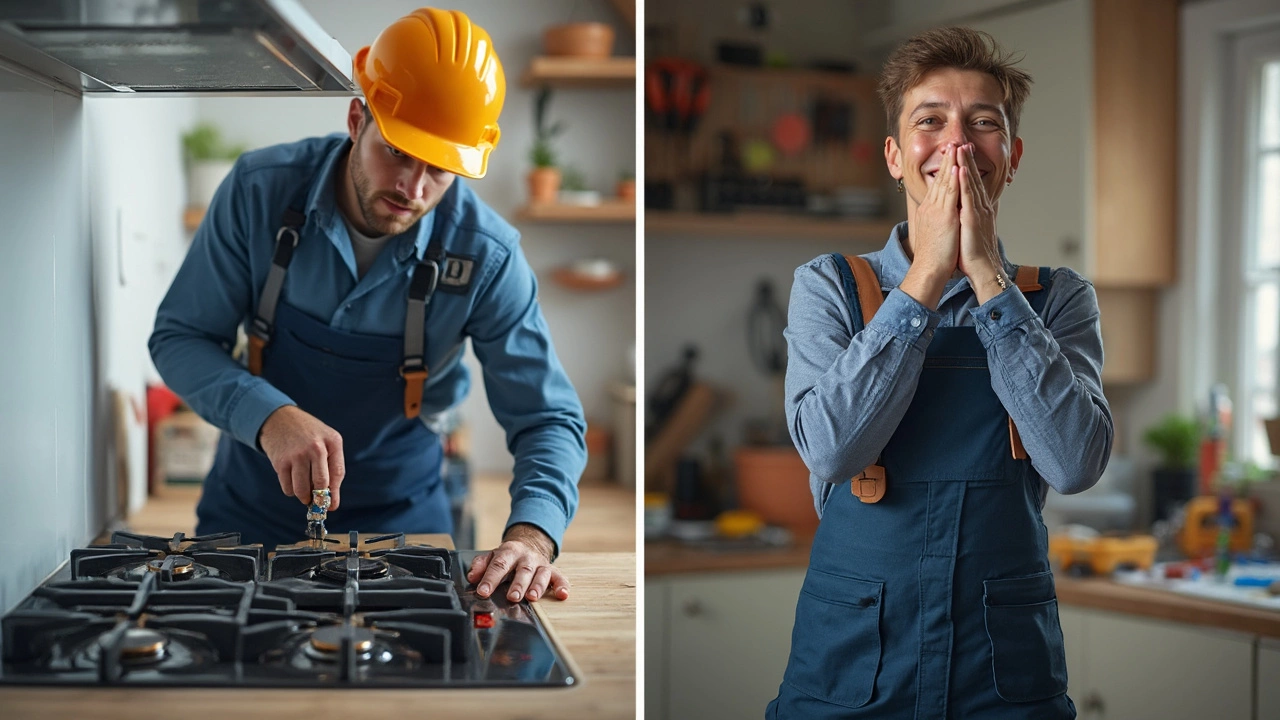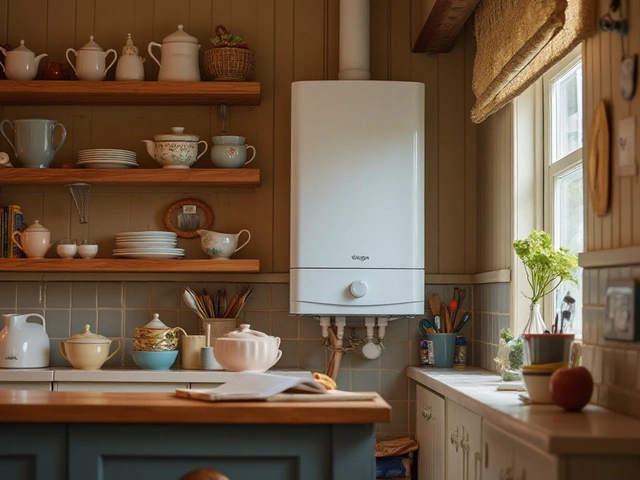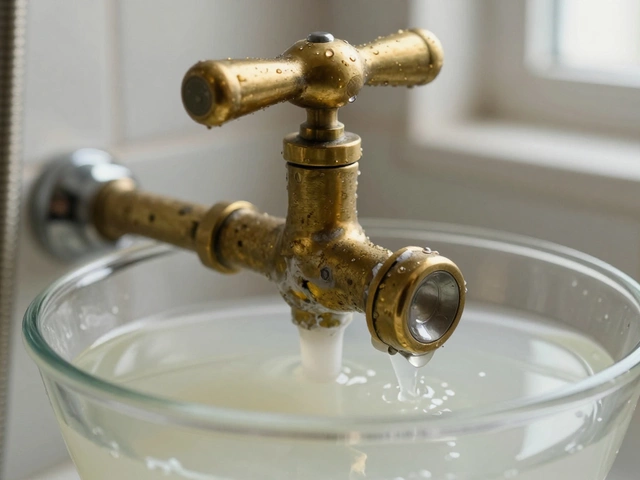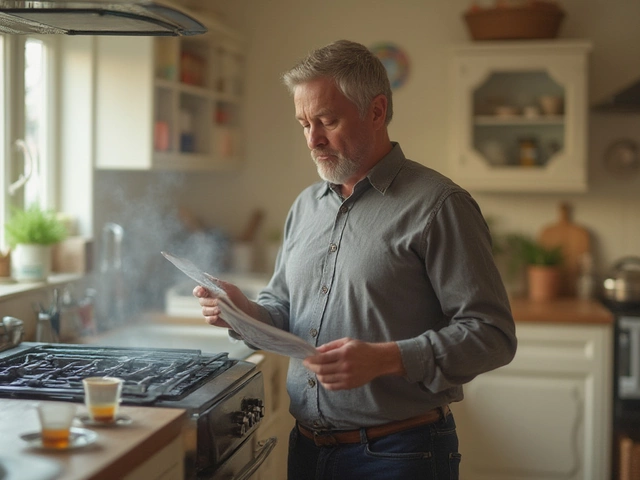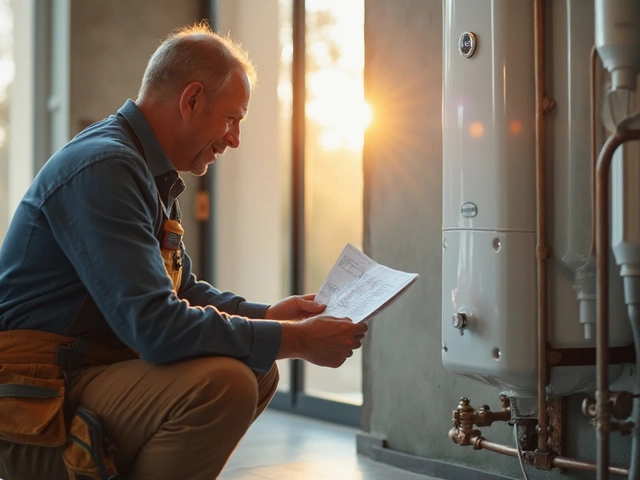So, your gas hob is on its last leg and you're itching to swap it out, possibly saving a bit of dough. But before you dive headfirst into this DIY adventure, pump the brakes a bit. Replacing a gas hob isn’t just about matching a new one to your kitchen’s vibe; it's about understanding the nitty-gritty of handling gas appliances safely.
You might be thinking, how hard can it be? Well, dealing with gas involves risks that aren't exactly DIY-friendly—unless you fancy living on the edge and want to flirt with potential gas leaks and explosions! Gas safety regulations aren't just red tape; they're there to keep you and your house intact. That's where your friendly neighborhood gas engineer comes into the picture, armed with the skills and licenses to ensure everything is shipshape.
Now, I won’t just leave you hanging here. Let's explore why hiring a pro isn't just a money pit and why it's actually a smart move for something as crucial as a gas hob. From dodging legal headaches to ensuring your new hob runs smoother than ever, knowing when to call in the experts can save you more than you'd expect in the long run. Stick around to find out how to make this home improvement both safe and savvy.
- Understanding the Basics of Gas Hobs
- Legal Requirements for Replacement
- Safety Risks of DIY Installation
- Benefits of Hiring a Gas Engineer
- Cost Considerations
- Final Tips for Safe Hob Replacement
Understanding the Basics of Gas Hobs
Alright, let's get down to the nuts and bolts of gas hobs. These appliances are a staple in many kitchens because they offer precise control over cooking temperatures, thanks to their open flames. Unlike electric hobs, gas varieties heat up quickly and cool down just as fast, which is super handy if you're whipping up a meal in a hurry.
However, gas hobs aren't just about flicking on the flame and getting started. There’s a bit of technology under the hood. Usually, they consist of burners, a control panel, and safety features like flame failure devices. The safety gear is there to make sure gas stops flowing if the flame ever goes out unexpectedly.
Another neat thing? They come in various styles and sizes to fit different needs and kitchen layouts. Most are crafted from sturdy materials like stainless steel or tempered glass. But here's the catch: installing one requires connecting to your home’s gas supply, which is why calling in a gas engineer is often a good call.
Gas pressure and supply lines need careful handling. Depending on where you live, there might be specific regulations you'll need to follow when replacing your gas hob. Not following these could lead to problems, plus it's just plain risky.
Choices abound between 2, 4, 5 or even 6-burner configurations, allowing flexibility based on how much cooking you do. Many modern gas hobs include electronic ignition, marking a move away from having a separate lighter to get things going.
But it’s not all about hardware. Manufacturers are continuously improving energy efficiency and safety, which means newer models might offer features your old hob didn’t have, like child safety locks or automatic ignition timers. So if you’re thinking about an upgrade, these features could be worth checking out.
Whether you’re a culinary enthusiast or just someone who likes home-cooked meals, gas hobs are a popular choice. Just remember, the right installation isn't just about aesthetics or convenience—it's a safety measure everyone should seriously consider.
Legal Requirements for Replacement
Alright, let’s get real here. Legal stuff probably isn’t the most exciting part of your DIY dreams, but it’s kinda crucial when we’re talking gas hobs. This isn't just about plugging in a toaster; this is stuff that, if not done right, could go very, very wrong. So, what are the actual legal requirements when you want to replace that old clunker of a hob?
First off, in many places, installing or replacing a gas appliance like a hob requires a registered gas engineer. In the UK, for example, you must be on the Gas Safe Register to legally work on gas appliances. It's a bit like needing a driving license before you hop on the motorway. It's not just a suggestion; it's the law.
Beyond the technical know-how, these pros bring essential safety checks to the table. They ensure that your gas supply and ventilation systems meet the current safety standards, preventing nasty surprises like leaks. They've got the gear and the skills to test these things properly, which is a massive peace-of-mind booster.
Also, having a pro do the job means they’ll provide you with a certificate of compliance after the installation. This little piece of paper can come in handy if you’re planning to sell your house down the line, as it’s often required during inspections or by insurance companies. Let’s face it, avoiding future hassle is always a win.
Imagine saving a bit of cash now by doing it yourself, only to fork out way more later for repairs and fines. Not fun, right? That's why sticking to the proper channels and hooking up with a licensed engineer is not just a smart move—it's the legally sound one. It saves you from a heap of trouble and ensures everything's playing by the book.
Safety Risks of DIY Installation
Thinking about swapping that gas hob yourself? It might seem like a straightforward task, but let's talk about the safety risks that come with a DIY approach. First up, the big one: gas leaks. Without the right skills and equipment, your chance of getting the gas connections wrong is a real problem—not exactly a thrill ride you want to take!
Messing up gas lines isn’t just a small oopsie; it can lead to severe consequences. There’s the obvious risk of a gas leak, which can lead to carbon monoxide poisoning. Just a little exposure can be dangerous, and you don't want those headaches or worse, trust me. Gas appliances require careful calibration to ensure burning efficiency and proper ventilation.
Also, let's chat legal issues. Installing a gas hob without proper certification isn’t just risky; it's illegal in many places. If something goes south, your homeowner's insurance might not cover the damage. This could mean digging deep into your pockets for repair costs.
Consider these potential dangers:
- Gas leaks leading to fire or explosions
- Carbon monoxide buildup due to improper ventilation
- Electrical mishaps if the gas hob has electronic controls
- Voiding warranty or insurance policies without professional installation
Here’s another thought-provoker: in a survey by the Home Appliance Safety and Improvement Bureau, they found that nearly 70% of amateur gas appliance installations had safety issues within the first six months. Those odds aren't great, right?
So, whether it's grappling with the danger of gas leaks or the financial fallout from botching the job, the stakes are high. Trusting a licensed gas engineer isn't just about doing things by the book; it’s about ensuring the safety of everyone in your home. Replacing a gas hob isn't the time to try a YouTube tutorial unless you're keen on auditioning for a 'What Not to Do' video!
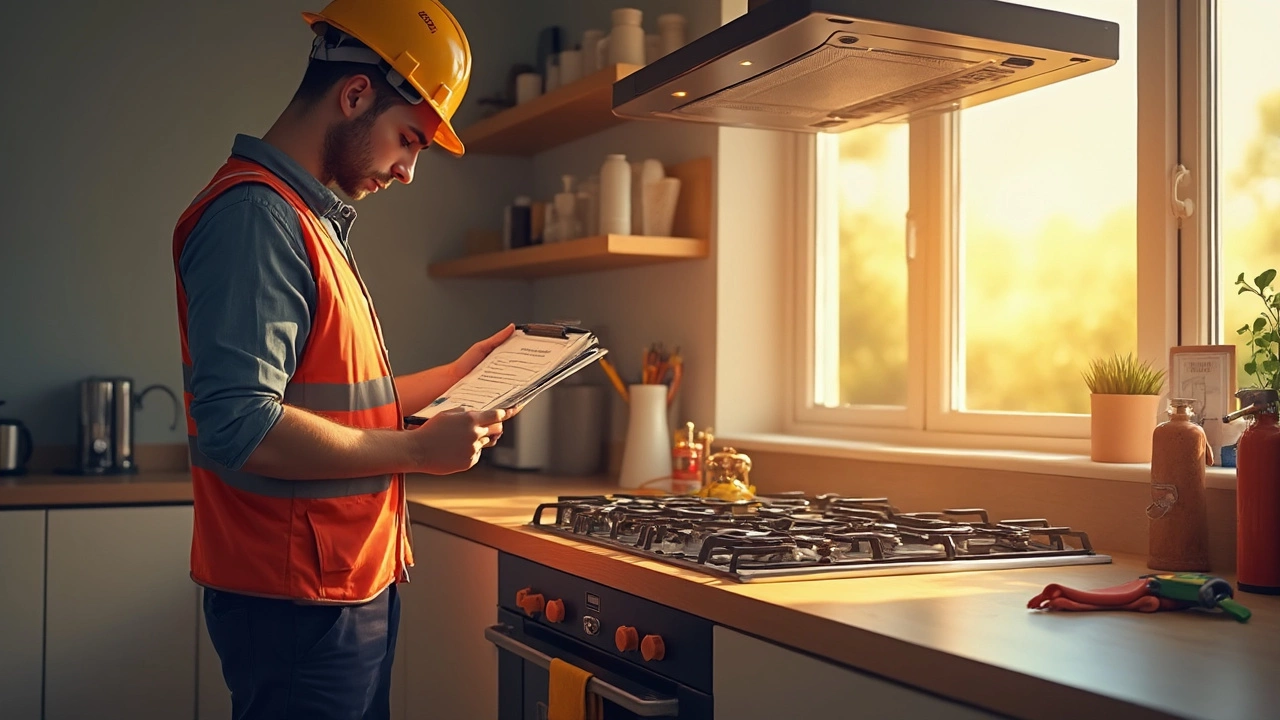
Benefits of Hiring a Gas Engineer
Wondering if you should bring in a pro for replacing your gas hob? Hiring a gas engineer could be the smartest decision you make for a few good reasons. Let's break it down.
First up, safety. A gas engineer has the know-how to ensure the hob is installed correctly, meaning no risk of gas leaks. They follow strict safety standards that most of us are blissfully unaware of. This isn’t the same as fixing a leaky sink; you're dealing with something that could seriously mess up your home or health.
Next, let’s talk legality. In the UK, for example, it's actually illegal to install gas appliances without being Gas Safe registered. So unless you're looking forward to potential fines or sleepless nights worrying, it's best to have a certified engineer tackle it. They have the credentials to provide you with a compliance certificate, which can be crucial if you ever sell your home.
Also, there's a good chance your insurance and warranty agreements require that a gas engineer do the installation. Stray from this, and you're on your own if something goes wrong. Nobody wants to foot the bill for damage insurance won’t cover.
The peace of mind you get is priceless, really. An engineer ensures everything runs smoothly from start to finish, leaving you with a hob that cooks perfect meals without a hitch. Missing out on enjoying a worry-free kitchen experience isn’t on anyone’s wish list.
Okay, what about cost? Believe it or not, hiring a professional can actually save you money in the long run. Imagine messing up the install and needing to hire an expert anyway, plus the potential costs of fixing damage caused by improper installation. Not so cost-effective, is it?
By going with a gas engineer, you're making a solid investment in your home and safety. They bring experience, reduce risks, and give you confidence, allowing you to focus on what’s important: nailing that next dinner party!
| Aspect | Hiring a Gas Engineer |
|---|---|
| Safety | Expert knowledge ensures a leak-free installation |
| Legal Compliance | Certified and legally compliant installation |
| Insurance Coverage | Maintains eligibility |
Cost Considerations
Alright, so you're probably wondering how much this whole gas hob replacement might set you back. Let's break it down so you're not hit with any surprise expenses. First up, the cost of a new gas hob itself. Depending on the brand and features, you could be looking at prices ranging from about $150 to $1,200. Yeah, it's a pretty wide range, but it all comes down to what your kitchen needs and what's on your wish list.
Now, besides just buying the hob, you have to think about the installation cost if you decide to bring in a gas engineer. Professional installation isn't just about screwing on some connections; it's about making sure everything is sealed tight and up to snuff with safety standards. Hiring a gas engineer might cost you anywhere from $150 to $300 as a general service fee. This might seem like an extra hit, but remember, you're paying for peace of mind and safety.
Here's a quick snapshot for you:
| Expense | Cost Range |
|---|---|
| New Gas Hob | $150 - $1,200 |
| Gas Engineer Installation | $150 - $300 |
Roll up all these numbers, and you're looking at a complete job costing between around $300 and $1,500, depending on your choices. It's a chunk of change, but keep in mind the alternative: risking potential issues that could lead to damage, costs, or even worse, health hazards.
Before you decide anything, check if your old appliance is covered under any warranty or if there are discounts for appliance swaps by your gas provider—you might snag some unexpected savings. Also, keep in mind that if your installation doesn't meet regulations, you might be spending more later fixing things up, so it's smart to invest upfront and save down the line.
Final Tips for Safe Hob Replacement
Alright, you've decided to replace that old clunker. Before you go full steam ahead, here are some practical tips to make sure your new gas hob is installed safely and works like a charm. No need to learn the hard way when you can sidestep common pitfalls!
First off, take a good look at your kitchen layout. Ensure there’s enough space around your hob. Cramped spaces can mean heat damage to cabinets or walls, which can spell trouble down the line. And while aesthetics matter, safety should be the priority.
Next, double-check your gas connection. Is it in good shape? If anything looks worn or suspect, better to have it checked by a gas engineer than risk an emergency later. Remember, these experts know what to look for in potential leak spots and can ensure everything seals up tight.
It's also wise to install a carbon monoxide detector nearby. These little gadgets can be lifesavers, literally. They’ll alert you if any gas is lurking around where it shouldn't be.
Now, let's get technical for a second. You might think DIY is cheaper, but have you checked the costs? Hiring a gas engineer might set you back a bit upfront, but think about the assurance you get. Imagine installing it wrong and having to do it all over or fix a gas leak. That's an expense nobody needs.
Finally, consider future maintenance. Get into the habit of servicing your new hob regularly. It's like giving your car those oil changes it desperately needs. Regular check-ups mean your hob stays efficient and you catch any issues before they become major headaches.
Here's a quick checklist to keep you on track:
- Check spacing and heat clearances.
- Inspect the gas connection.
- Install a carbon monoxide detector.
- Plan for professional installation costs.
- Schedule regular maintenance.
Follow these steps, and you’ll not only have a sleek new hob but also peace of mind knowing it’s safe and sound.
